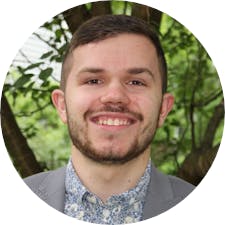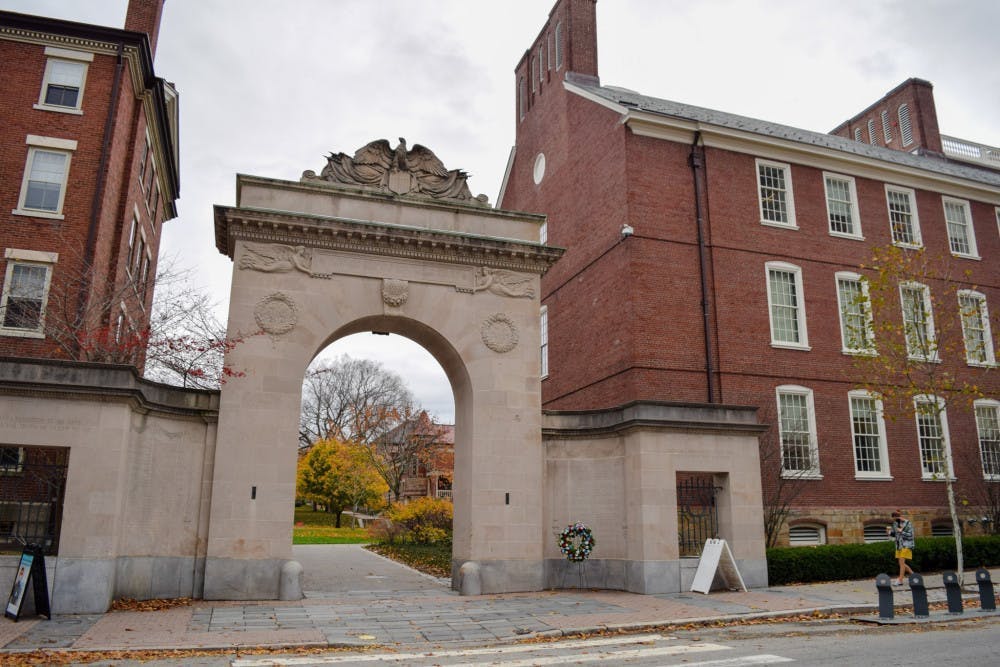Students, administrators and faculty discussed the progress of the ongoing Task Force on Anti-Black Racism and the University’s financial standing at the Nov. 10 Brown University Community Council meeting.
Task Force on Anti-Black Racism
According to Andre Willis, associate professor of religious studies and co-chair of the Task Force on Anti-Black Racism, the leaders of the task force first spoke to a number of students, faculty and staff to investigate anti-Black racism in and around the Brown community upon the founding of the task force in June 2020. They defined anti-Black racism as “a systemic devaluation of the Black community, Black intelligence (and) Black moral character,” Willis said.
After these initial discussions, the task force, which is composed of faculty, staff, undergraduate students, graduate students and other members of the campus community, was formed. The diversity of perspectives of task force members was challenging to navigate in discussions, Willis said, but he characterized the challenge as “wonderful.”
“We got different ideas from these various angles as to how we might recommend Brown improve” the experience of Black students, faculty and staff, Willis said.
The task force made recommendations in four areas: curriculum, community, climate and policy, Willis said. They also framed their recommendations through three framing devices: accountability, representation and transformation.
In April 2021, the task force presented Paxson with a list of 19 recommendations. The goal of the recommendations is to “change fundamentally the conditions of hostility and suffering and difficulty that we were hearing about (from) some of our Black constituents on campus and in our community,” Willis said.
Sylvia Carey-Butler, vice president for institutional equity and diversity, emphasized her commitment to “addressing the experiences of Black and brown people at Brown.” She addressed specific elements of the University’s efforts, including those to recruit more Black post-doctoral fellows and to increase connections between Brown and Historically Black Colleges and Universities.
Brown will host an event highlighting the release of the second edition of the Slavery and Justice Report this Friday as a part of the task force’s efforts, Paxson added.
Paxson and Carey-Butler both spoke of the importance of changing Brown’s culture to address anti-Black racism at Brown. The “deeper cultural change piece … is at the root of everything we are trying to do,” Paxson said.
Carey-Butler added that, while curricular changes are important, they must be accompanied by cultural shifts more broadly. “That is where we begin moving culture, when you have both of these things addressed at the same time,” she said.
Donnell Williamson PhD’25 highlighted the numerous ways anti-Black racism manifests in everyday life on Brown’s campus — from microaggressions to racial slurs. He further emphasized that these issues affect staff, faculty and students, and heighten the need for changes to improve the overall quality of life for all Black members of the Brown community.
“The work is not done,” Willis said. “These issues do not go away overnight and we all need to keep working.”
Financial standing
Paxson expressed optimism about the University’s financial position and its future outlook. She specifically pointed to the University’s sizable endowment gains and success in meeting a fundraising goal of over $3 billion as part of the BrownTogether campaign.
Still, Paxson expressed concern over Brown’s substantial budget deficit, which she attributed to a loss of revenue and a number of added costs due to the COVID-19 pandemic. Paxson pointed to the costs of mandatory testing and hotel rooms for quarantine, along with the revenue lost from a reduced Summer@Brown program, as key factors. She also raised fears of “market correction” in future fiscal years, which could reverse some of Fiscal Year 2021’s substantial endowment growth.
When discussing the benefits of the endowment growth, Paxson highlighted the University’s recently-announced changes to financial aid and scholarships, including the elimination of home equity in financial aid consideration and the reduction of the summer earnings expectation for some low-income students, The Herald previously reported. The endowment payout for scholarships alone is expected to increase by $30 million, according to Paxson.
Paxson further discussed the move toward need-blind admissions for international students, which will “make our community richer,” she said.
Another previously-announced initiative Paxson mentioned was aimed at helping prepare Providence public school students for selective four-year colleges, including Brown, The Herald previously reported. Paxson expressed hope that this will benefit both the Providence and Rhode Island communities more broadly. She also hopes the initiative will help to bring more local BIPOC and low-income students to Brown.
The BUCC also discussed issues of medical school admissions and curriculum as well as Narragansett Indigenous enrollment at Brown. Executive Vice President for Planning and Policy Russell Carey ’91 MA ’06 is leading a working group on land acknowledgement, which will also issue recommendations relating to Brown’s relationship with local Indigenous communities. The working group will make a report to Paxson before the end of the semester, Carey said.
Paxson concluded the meeting by expressing optimism about the work of the Task Force on Anti-Black Racism and the Campus Safety and Security Working Group going forward. “Both of these initiatives link up (in) indirect but really important ways,” she said. “You will hear more about (these initiatives) throughout the course of the year.”

Peter Swope was the senior editor of digital engagement for The Brown Daily Herald's 133rd Editorial Board. He previously served as a Sports section editor and has also written stories for University News. Peter is a senior from New Jersey studying history.





